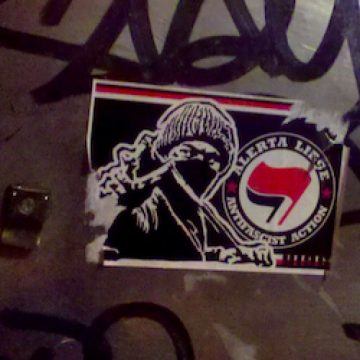 Michael Scott Moore in the LA Review of Books:
Michael Scott Moore in the LA Review of Books:
IN 2005, I covered a raucous political rally in the German town of Gera, near Weimar, featuring neo-Nazis who wanted to field a candidate for chancellor during the national election that brought Angela Merkel to power. Their man was a belligerent politician with a mustache named Udo Voigt. Skinheads and more conventional-looking Germans — including Birkenstock-wearing young families — gathered in the dappled sunlight of an enclosed park for speeches and music. Local police had surrounded the park’s perimeter to keep counterprotesters marching against the rally in Gera’s cobblestoned streets from clashing with the skinheads. Police turn up whenever neo-Nazis march in postwar Germany — without them there would be riots.
A far-right band in the park had just finished a set of racist thrash music while tech workers arranged the stage for a speech by Voigt. Behind them a banner for the NPD, Germany’s most significant neo-Nazi party at the time, fluttered in the wind. I happened to ask a pregnant woman pushing a stroller across the grass why she voted NPD. Familie und Vaterland, she said. Policies favoring German families, German priorities. She felt alienated by Gerhard Schröder’s Social Democrats and Merkel’s more conservative CDU/CSU — the major parties — and although she cast herself as a simple dissident against the German mainstream, the racist fog of the rally was hard to ignore.
She gave me a gentle smile as she explained her problem with Germany’s conventional parties. “They put up with too much corruption,” she said.
I took notes, which a lot of people regarded with suspicion. Udo Voigt mounted the stage between black columns of amplifiers and spoke with his sleeves rolled up, like a man with work to do. He gave the usual populist far-right line: anti-immigrant, anti-establishment, anti-journalist, pro-German blood and soil. The next time I saw a similar event was 10 years later, when US networks started to televise Donald Trump’s campaign rallies.
More here.
